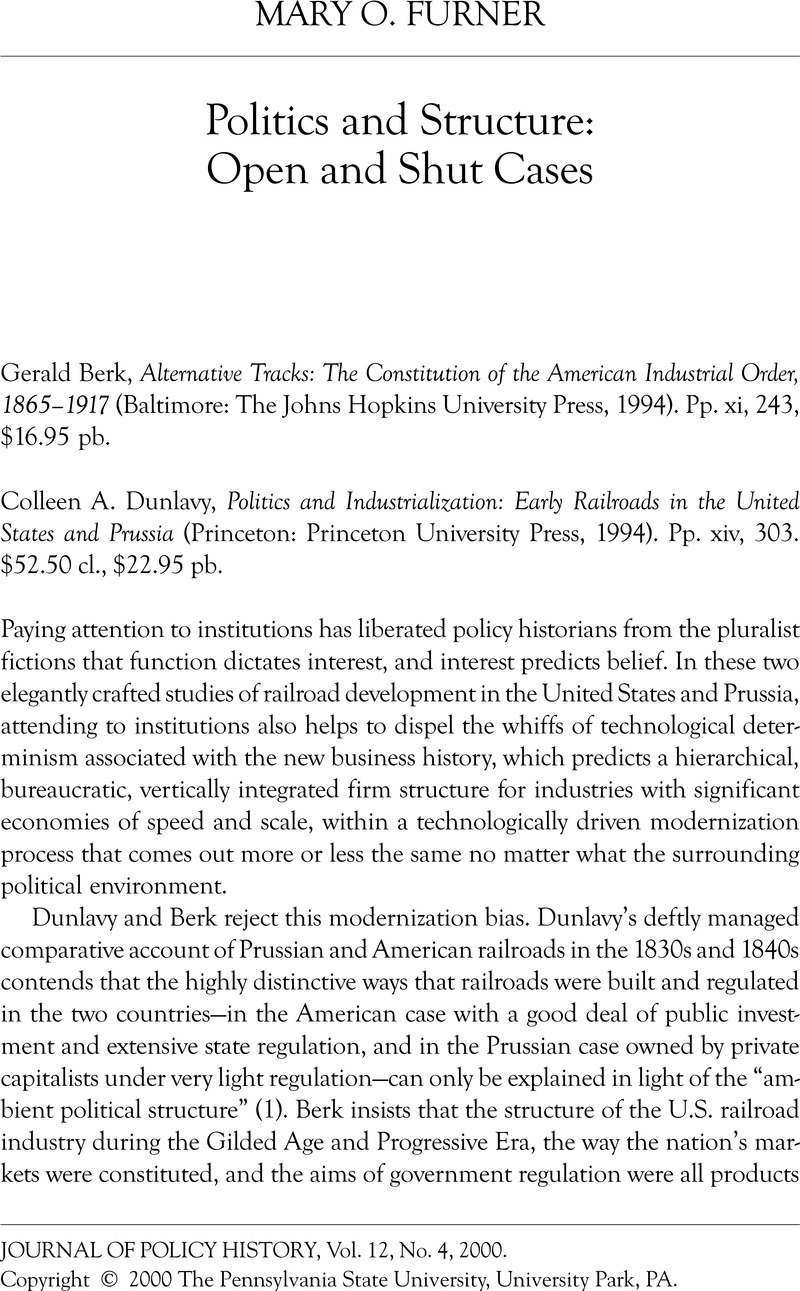No CrossRef data available.
Published online by Cambridge University Press: 27 April 2009

1. Building a New American State (1982). The analytical structure of Skowronek's more recent The Politics Presidents Make (1993) is similar to Berk's; presidents have more or less latitude for leadership, depending on where their presidencies fall in relation to recurring cycles of reconstruction, articulation, and disjunction of their party's ideological and programmatic commitments.
2. Recall that legal historian McCurdy, Charles found a similar role for judges in creating a national market for goods, in “American Law and the Marketing Structure of the Large Corporation,” Journal of Economic History 38 (1978): 631–649.CrossRefGoogle Scholar
3. Philip Scranton's work has challenged the linear model of a transition from proprietary to corporation capitalism by demonstrating the persistence of a large and profitable economy of specialty firms in manufacturing. See his Proprietary Capitalism: The Textile Manufacture at Philadelphia, 1800–1885 (1983); and his Endless Novelty: Specialty Production and American Industrialization, 1865–1925 (1997).
To send this article to your Kindle, first ensure no-reply@cambridge.org is added to your Approved Personal Document E-mail List under your Personal Document Settings on the Manage Your Content and Devices page of your Amazon account. Then enter the ‘name’ part of your Kindle email address below. Find out more about sending to your Kindle. Find out more about saving to your Kindle.
Note you can select to save to either the @free.kindle.com or @kindle.com variations. ‘@free.kindle.com’ emails are free but can only be saved to your device when it is connected to wi-fi. ‘@kindle.com’ emails can be delivered even when you are not connected to wi-fi, but note that service fees apply.
Find out more about the Kindle Personal Document Service.
To save this article to your Dropbox account, please select one or more formats and confirm that you agree to abide by our usage policies. If this is the first time you used this feature, you will be asked to authorise Cambridge Core to connect with your Dropbox account. Find out more about saving content to Dropbox.
To save this article to your Google Drive account, please select one or more formats and confirm that you agree to abide by our usage policies. If this is the first time you used this feature, you will be asked to authorise Cambridge Core to connect with your Google Drive account. Find out more about saving content to Google Drive.